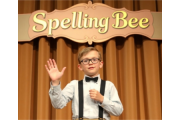‘No, but your family came from away, just like mine. They came just like the runaway slaves did, fleeing oppression in the U.S.. Didja never hear of the Underground Railroad?’
‘Yes, but that was a long time ago. Slavery’s illegal now.’
‘All I know is what I heard on the radio. There’s a barrier—an electrified fence of some sort—south of Chicago, doing its best, the reporter said, “to keep migrants out of the Great Lakes.” Those were his very words. That means they are being prevented from leaving by boat.’
There was a leap of logic here that Adam could not quite articulate. He frowned.
Was the fence as long as the border, or was it only near Chicago? Could you go around it? Well, could you? He wished he dared ask.
Ben continued. ‘I heard an officer from the U.S. Army Corps of Engineers say on that newscast that he wanted to” slam the door shut.” Those were his exact words. Like the Governor of Arizona wanting to keep out the “wetbacks”. The President even wants a wall along the border with Mexico. Which he says he’ll make Mexicans pay for! And they call their country “the home of Liberty!”’ He gave a bitter laugh. ‘My grandfather left the U.S. because he was opposed to the napalming of innocent villagers. That’s how come we live in Canada. They called him a draft dodger, but he was a conscientious objector. A conchie!’
Adam was nonplussed. When his friend’s rhetoric soared, his vocabulary did too, leaving the younger boy dazzled but baffled. What was napalming? What was a conchie?
‘So it makes sense for us to be a welcoming committee, if they come by night., which they probably will. Wouldn’t you?’
Adam tried to digest this while Ben played his flashlight on the empty black water one last time before he trotted back to bed behind Ben, each boy a separate island of frustration.
On a night bright with moonshine, Adam and Ben kept vigil yet again, wrapped in sleeping bags and fortified with flasks of hot chocolate smuggled from the canteen, determined to wear out the long night together. A few yellowing leaves above their heads rustled uneasily in the dark as they waited on the rocks at the lake’s edge. A melancholy foghorn sounded out in the gloom, and something jumped in the water nearby.
‘I never told you,’ began Ben, portentously breaking the silence, ‘that I heard the name of one of those refugee families. They were the Karps.’
‘Karps?’
‘Yes. Karps. That mean anything to you?’
‘No. Should it?’
‘It’s a Jewish name. There’s still plenty of anti-Semitism about, even in the U.S. The man on the radio identified them as Karp.’
They had both studied the Holocaust. It appeared to be the one constant in the school curriculum. Adam knew Benjamin Cohen was sensitive about discrimination, especially as it applied to his own people. His mother, he had told Adam proudly, was the chair of her local chapter of some Jewish service club called “Babe Ruth” or something like that.
‘Look! Over there—a flashlight!’




